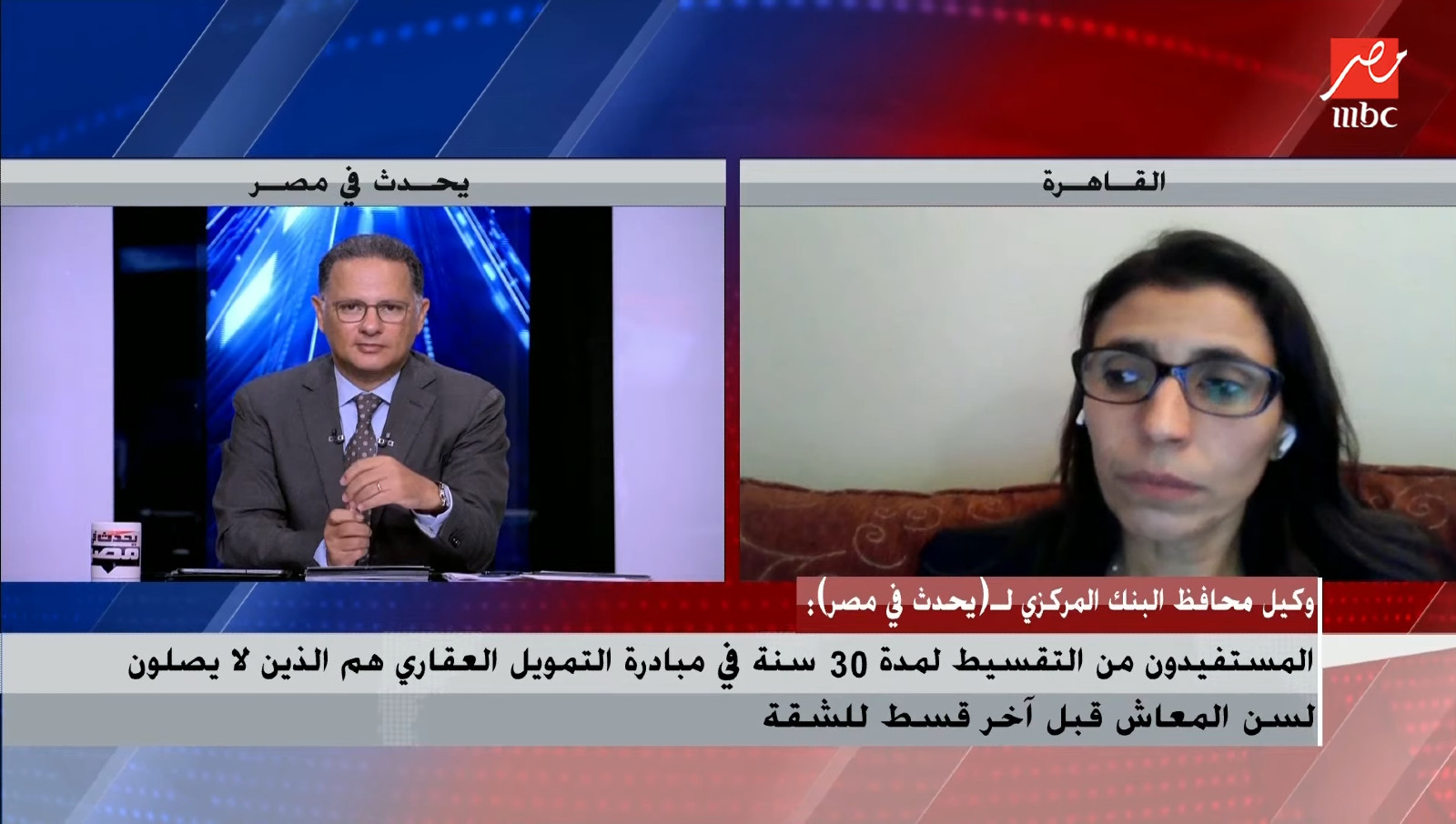More details on the EGP 100 bn mortgage finance initiative

The new mortgage finance initiative for low- and middle-income earners came top of the agenda on the nation’s talk shows last night. Launched yesterday, the CBE initiative will see EGP 100 bn lent out to low- and middle-income homebuyers. It offers 30-year mortgages at a subsidized 3% interest rate. On hand to discuss the program last night were CBE deputy governors Rana Badawi and Gamal Negm, and Social Housing Fund Executive Director Mai Abdel Hameed.
Here’s a recap of the fine print as told to us yesterday by the CBE:
You’re considered a low-income borrower if you earn less than EGP 4.5k per month (EGP 6k per household). Borrowers in this bracket will be required to pay a 10% down payment and can access finance for homes worth up to EGP 350k. Middle-income borrowers are those with monthly net salaries of up to EGP 10k for individuals (EGP 14k per household). People in this bracket will need to cough up a down payment of at least 15% for homes worth up to EGP 1.1 mn and 20% for homes valued at EGP 1.1 mn to EGP 1.4 mn.
Affordable homes will be built to support the new initiative: The government will build fully-finished homes across a range of governorates and new cities with price tags ranging from EGP 165k up to EGP 310k, Abdel Hameed told Kelma Akhira’s Lamees El Hadidi (watch, runtime 11:49).
The initiative is likely to benefit 220k families, and cost the state coffers some EGP 120 bn over 30 years, CBE Deputy Governor for Banking Stability Gamal Negm said in an interview on Ala Mas’ouleety (watch, runtime 46:21).
But this has to be your first home, Deputy Governor of the Central Bank of Egypt Rana Badawitold Yahduth Fi Masr. Applications for second homes or holiday homes won’t be given access (watch, runtime 3:57 I 2:23).
A boost for the real estate sector? Badawi expects there to be high demand for the program, which she says will help to support the real estate sector.
But there are some concerns over how the program will be implemented: Homebuyers have in the past faced lengthy waiting times and bureaucratic hurdles when applying for mortgages, Tarek Shoukry, head of the Federation of Egyptian Chambers of Commerce’s real estate division, told Kelma Akhira (watch, runtime 10:23). He called on policymakers to set clear criteria and a timeframe for make banks and mortgage finance companies speed up the procedures, else the lengthy process may deter potential buyers from participating in the program.
Is the private sector getting involved? Most big developers don't currently offer homes within the price range set under the initiative, but they are ready to cater to these income brackets if they're assured that the amount allocated for the initiative won't run out by the time they place the homes on the market, he added.
The story also got more coverage on Al Hayah Al Youm (watch, runtime 15:26) and Al Kahera Wel Nas (watch, runtime 9:08).
GERD is still the talk of airwaves: Samuel Warberg, a regional spokesperson for the US State Department, made an appearance on Ala Mas’ouleety to explain US’ position from the GERD crisis while reiterating his call for resuming negotiations and avoiding any unilateral actions (watch, runtime 19:32). Slovenia Foreign Minister Anže Logar (watch, runtime 1:43) and Austrian Foreign Minister Alexander Schallenberg (watch, runtime 1:12) were also on the program to discuss the GERD. Foreign Minister Sameh Shoukry’s third day in Brussels also got coverage in Al Hayah Al Youm (watch, runtime 1:03 I 2:57). Yahdoth Fi Masr also had an interview with politician Mostafa El Feki to share his insights on the issue (watch, runtime 4:10 I 3:43). We have more on Shoukry’s day in Brussels in this morning’s Diplomacy story, above.